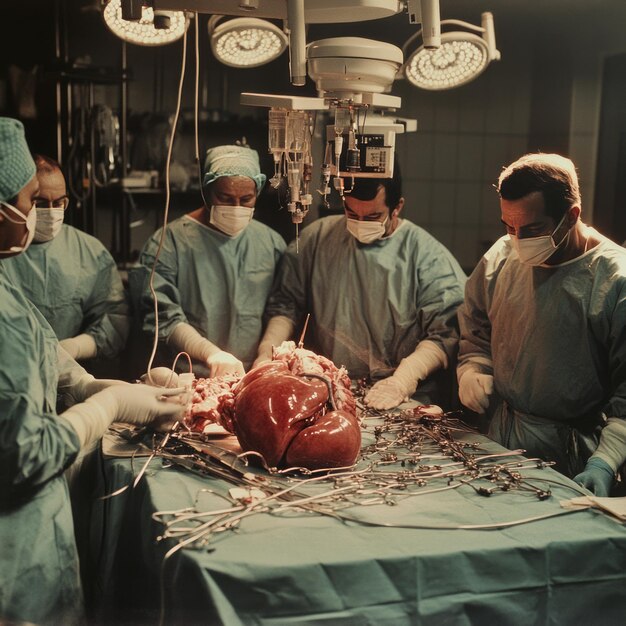
Table of Contents
Liver transplantation becomes the last indication for patients with advanced-stage liver diseases, such as cirrhosis, hepatoma and acute liver failure.
It is a surgery that brings about a change in the epilogue of many peoples’ lives. Similar issues were encountered in Pakistan that made the population develop chronic liver diseases such as viral hepatitis, alcoholism and fatty liver.
As a result, this has created the need for carrying out liver transplant in Pakistan people to increase to a great extent.
It should be noted, however, that to realize the possibility of performing a liver transplant, many obstacles fall within the category of the art of surgery and involve blockchain and medical economics to find a matching donor besides solving the surgical procedure’s costs and other logistical issues.
In Pakistan, such treatment is practiced only in a few hospitals and Transplant centers, where treatment costs considerably less than in Western countries.
But even with the improvement of medical services, attempts at liver transplantation are still not fruitful because of the shortage of treatable patients and the availability of medical services.
This research sheds light on the liver transplantation procedure in Pakistan, including where to go for the treatment, how much it will cost, the hospitals providing the service and the likelihood of success.
Furthermore, it will also give an overview of liver transplantation in Pakistan, its trends over the years, outcomes, complications and prospects.
What Are the Types of Liver Transplants in Pakistan?
In Pakistan, there are two prevalent forms of liver transplant in Pakistan surgery. One includes transplant surgery that uses the liver from alive donors, while the other uses the liver from a deceased donor.
A part of the healthy liver of another person who is not biologically related to the patient is surgically excised and implanted into the patient in living donor liver transplantation.
This is because the operation involves the removal of a portion of the liver and returning it to the body such that the livers of both the donor and the recipient become normal.
This method is practiced in Pakistan due to the sociocultural and religious beliefs that restrict live organ donation from cadaveric donors.
On the other hand, it is rare for liver transplants in Pakistan to perform deceased donor liver transplants. It is done when a liver is taken out from a dead brain person whose organs are in a condition for usage.
Because there are very few deceased donors and there is no culture of organ donation programs, most patients end up having to use living donors, most often family members.
In Pakistan, this specific feature of liver transplant in Pakistan is regarded mainly as an undertaking to provide a solution to the challenges of performing liver transplants in developing countries like Pakistan, where organ donation is viewed as a stigma even at death.
How Much Does A Liver Transplant In Pakistan Cost?

The cost of a liver transplant in Pakistan is reported to differ according to the hospital’s amenities, the type of procedure and the patient’s recovery status.
Even though this is a significant reduction when compared to the costs of a liver transplant in Western countries still, for some families in Pakistan, this is a considerable amount.
The costs of care include invasive surgical procedures, expenses related to hospitalization, and assessment services before and after the surgery, among others.
However, additional costs can arise that are not covered in the quote above, for instance, regarding the implants that help prevent the transplanted liver from being rejected by the body.
Often, the patients cannot pay for such demands in medical procedures because, in particular, some hospitals look so low.
Some patients seek some financial aid programs because treatment is so expensive. Also, some families seek or try to find donations or other inducements via the Internet, and it lightens the load of the high cost of liver transplants in Pakistan.
What Are the Success Rates of Liver Transplants in Pakistan?

The majority of liver transplant centers in Pakistan can keep these patients alive, with survival rates of 80-90% in a year after transplant.
Other variables determine the success rate: the patient’s health at the time of transplant, the expertise of the operating team and standards of care after surgery.
Those liver transplant recipients, where all prescribed medications are taken without misses, life changes are made, and medical consultations are being unobtrusively carried out, should expect to do well.
However, some factors are barriers to the success of surgeries in Pakistan. There are no adequate medical facilities in most cases, particularly in.
Who are sick of daily routines and the service rendered by hospitals and clinics in their cities. Due to this limitation, if not all, people who undergo liver transplants in Pakistan should be able to return to an active, healthy life if they follow the prescribed treatment and healthy lifestyle.
It is to be argued that pure intravenous therapies should be replenished by regular monthly maintenance therapy, which is directed at the control of precursory or assaultive conditions.
What Are the Challenges of Liver Transplants in Pakistan?

Despite advancements in the field of medicine as well as the intricate nature of the surgery, liver transplantation in Pakistan has its share of problems.
One such considerable barrier is the unavailability of organ donors, especially in case of death. Sociocultural and religious orientations, in most cases, do not accept the removal of organs from the dead; thus, there are fewer livers for transplantation.
Most of the transplants are being done with living donors, and this limits the number of transplants done.
In Pakistan, however, the procedure prices still present one of the major obstacles for most households.
While a few hospitals provide some cost coverage for the surgical procedure, there are considerably high costs for all other expenses, including post-operative care and life-long medication.
AccessAccess to qualified and competent transplant centers is another major hindering factor,, mainly in rural areas, with few skilled surgeons and health facilities.
Additionally, awareness amongst the masses regarding the danger of diseases like liver disease and also the necessity of an early diagnosis for such diseases is not in a perfect state within Pakistan.
People tend to disregard the idea of going for treatment or seeking help for as long as they can, so it reduces the chances of having a successful transplant.
These barriers apply to the transplant program and will require several agencies, including health systems, the government, and even nongovernmental organizations, to promote liver transplants within the country.
How do you see Pakistan’s liver transplant surgery trend in the coming years?

Liver transplant is an emerging trend liver transplant in Pakistan since there has been improvement in getting not only healthcare but also the surgical abilities of the nation.
Slowly but surely, campaigns are being conducted to educate the public about the advantages of deceased organ donation. With time, this may help to alleviate the shortage of donors.
Another viewpoint is broadening the center’s expansion for specialized surgeon practitioners training on liver transplants. This emphasizes increasing the volume of successful treatment via transplant.
In place of such policies, such as the Governments and healthcare systems and their policies aimed at liver transplant costs will probably enable many members of society to consider the procedure affordable.
The number of patients liver transplant in Pakistan who will need liver transplants to save their lives will increase, however, as the health care delivery gets better. Patients with end-stage liver disease do have hope. Though the situation in Pakistan is,
FAQ’s
Is a liver transplant successful in Pakistan?
Yes. Pakistan achieved liver transplant in Pakistan success rates of about 80-90% within the first year, making it on par with global standards.
What do you think is the best age to perform a liver transplant?
Surgery between 18-60 years is the most appropriate age for performing liver transplantation because most of the patients within the younger-middle range tend to have better outcomes.
Who Cannot have a liver transplant?
Hence, individuals suffering from conditions affecting the lungs, such as pulmonary infections, active infections and, liver-related injuries, various heart diseases, are ruled out as candidates for liver transplant in Pakistan due to the high risk involved or poor prognosis.
Which fruits are forbidden after a liver transplant?
Patients after liver transplants are also told not to eat intense fruits like grapefruit or pomegranate. At the same time, pomegranate or pomegranate as the exogenous heating fruit may also disrupt the immunosuppressant therapy course.
Conclusion
It has been observed that Pakistan has a large number of active liver transplant in Pakistan, which is practical and saves many lives in the end-stage disease of the liver.
One might have concerns, like scarcity of organs, expensive organs and treatment to repair the needed body part or even time.
Compliance and acceptance of an appropriate patient care program after a liver transplant has to be a necessity for the patients.
